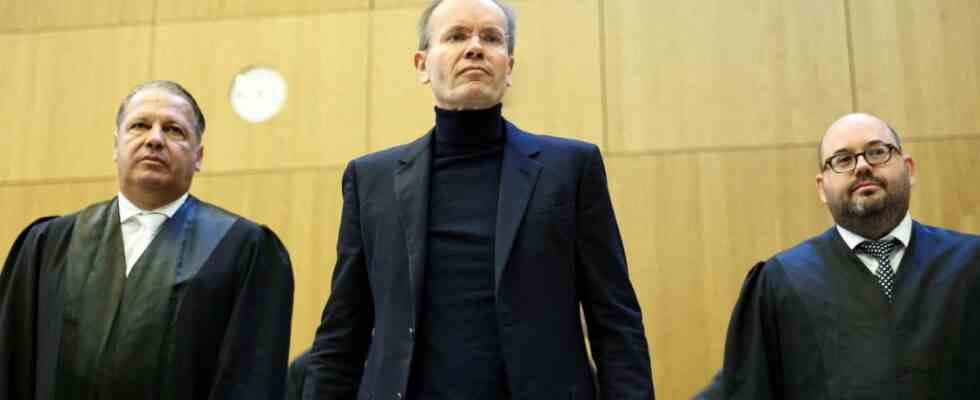Who asks, expects answers. At least, most of the time. But not on Wednesday, not in the Wirecard process. A lot is asked that day, hundreds of questions to the key witnesses are read out in the courtroom for hours. His reaction: silence, even for hours. The bizarre thing about it: everyone involved had already agreed in advance that it would work exactly like this.
The day is a compromise. Markus Födisch, the presiding judge in the Wirecard trial, mediated him between the team of Oliver Bellenhaus, the former governor of Wirecard in Dubai and today’s key witness, and the defense attorneys for his two co-defendants, the ex-Wirecard boss Markus Braun and the former The group’s chief accountant, Stephan E. Because on the one hand, Bellenhaus, as the accused, has the right to refuse to answer. On the other hand, the lawyers for the others have the right to confront him after he testifies. So some ask and the other is silent.
It’s an absurd spectacle. At the end, the lawyers still find that their clients’ rights have been violated and demand that Bellenhaus’ statement not be used for the verdict. And Födisch is little amused.
A total of 90 pages of questions
Braun’s defense attorney Alfred Dierlamm alone had previously read 50 pages, plus another 40 pages by Stephan Es’ lawyer Stephanie Kamp, for hours, question after question. It’s about emails peppered with swear words and the guest list at Bellenhaus’s wedding. About 500-euro bottles of red wine with the escaped ex-CEO Jan Marsalek, about Bellenhaus’ godchild and about the unflattering nickname of Stephan E. Lots of colorful details.
Above all, however, it is about the question: How credible is Bellenhaus, so what is the value of the extensive allegations that he makes of his former superiors? So it’s about the relationship with his ex-colleagues and bosses, his handling of data, servers and clouds, private financial transactions and the question of where the money came from. The questions therefore also deal in detail with a confusing network of companies in Asia and the Caribbean and the payment flows between them. They are said to have been used, as Braun and his lawyers have been saying for months, to smuggle hundreds of millions of euros out of the so-called third-party partner business with payment processing from the Wirecard Group – by Marsalek and Bellenhaus.
“The core to which everything has been aligned”
For weeks, Bellenhaus presented a completely different version in court: that there was never a real third-party business on the huge scale that was in the Wirecard balance sheets. That he invented the millions and millions of credit card transactions in Asia, made to order and in line with the specifications from corporate headquarters. That he was the “rain maker” and “the fixer”: the man who made money rain and got rid of all problems in return. And that he wasn’t alone.
He, his two co-defendants, as well as Marsalek and the former CFO Burkhard Ley were “a team”. The “operative pillars of the fraud” were he and Stephan E., Braun “the core on which everything was geared,” according to his version. “The court had to submit to him.”
All of the accused here would therefore be deeply involved in an alleged spectacular fraud that ultimately led to what is probably the biggest company bankruptcy in German post-war history, with a loss of many billions of euros for creditors and shareholders. So enough reason to ask again.

